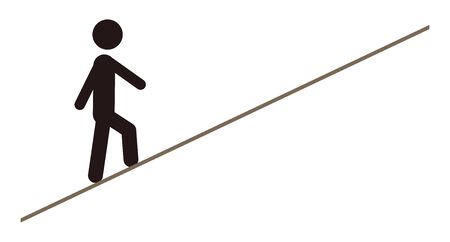
We are all familiar with Newton's third law of motion which states "what goes up must come down." In other words, Earth’s gravitational pull will eventually bring whatever is thrown up in the air back to the ground.
On a trail run this weekend I encountered a long downhill section. For long distance trail runners a nice long downhill can offer a welcomed break. As we meandered down the trail my friend and running partner turned to me and laughed, “what goes down must come up.” He was lamenting the fact that we had a big uphill in our future.
The same is true for mitigating learning losses due to the pandemic - what has been lost must be recouped. Most students have experienced some degree of regression and the gaps are larger for historically underserved student populations. It is our duty to recoup these losses if students are going to catch-up and succeed academically.
The conversation swirling around learning loss can be one part overwhelming (when you review the data) and the other part bewildering (when you see at what some schools are planning as interventions).
Perhaps I am over-simplifying this equation but the best way to mitigate learning loss is to focus on what promotes learning in the first place. When students develop agency as learners they are equipped to more confidently approach their education. The suite of executive functions and noncognitive skills have shown to be the promising vehicle to narrow achievement gaps, and they will show to recoup learning loss.
Most efforts to combat the Summer Slide are focused around summer programs. The COVID Slide is an entirely different animal. Programs offered this summer can help begin this work but the uphill climb is much taller. Therefore, we need to embed the work of mitigating losses directly into the content of the classes students will take in the fall. I see this as the most productive path forward. We simply do not have enough time in the summer, nor the entire next school year for that matter, to spend focused solely on recouping losses.
To help students “catch-up” students need daily modeling and practice with the noncognitive skills and executive factors that research has shown are the foundation for learning. Because educators are short on time, the only way to realistically accomplish this is by embedding this practice into the routine of the school day or class period. In doing so, we don't infringe on the time we have for instruction. Organized Binder makes this possible.
It is a long hill we need to climb, but when it comes to learning loss, for the sake of our students, we must commit ourselves to the work of what has gone down must come up!
Be well,
Mitch